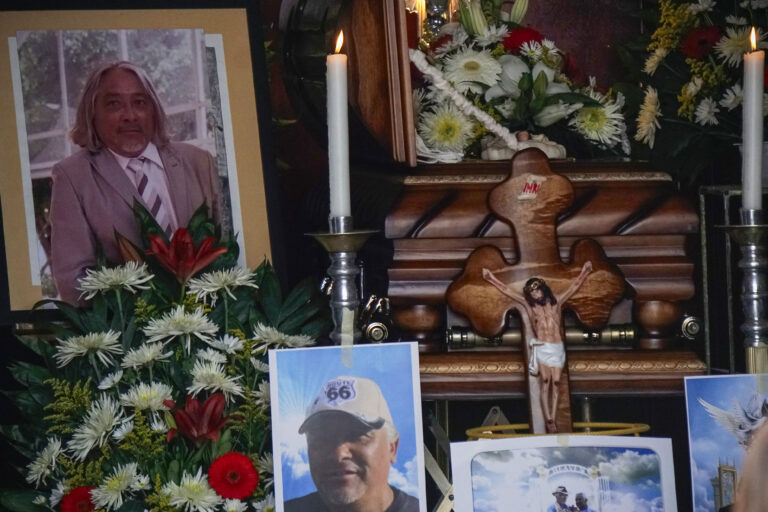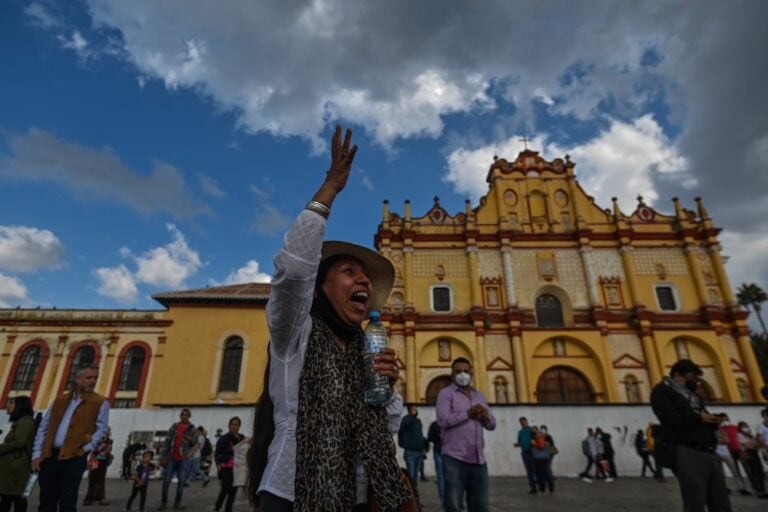(ARTICLE 19/CENCOS/IFEX) – At midday on 10 July 2008, personnel from the Federal Investigations Agency (Agencia Federal de Investigación, AFI), the Communications and Transport Secretariat (Secretaria de Comunicaciones y Transportes, SCT) and the ministerial police (policía ministerial) attempted to dismantle the radio station Radio Ñomndaa (“Ñomndaa” is the word for water in the Amuzga language) […]
(ARTICLE 19/CENCOS/IFEX) – At midday on 10 July 2008, personnel from the Federal Investigations Agency (Agencia Federal de Investigación, AFI), the Communications and Transport Secretariat (Secretaria de Comunicaciones y Transportes, SCT) and the ministerial police (policía ministerial) attempted to dismantle the radio station Radio Ñomndaa (“Ñomndaa” is the word for water in the Amuzga language) in the municipal administrative centre of Xochistlahuaca, Guerrero state, western Mexico.
According to information obtained from local sources, at about noon on 10 July, approximately 40 officers, 30 of whom were armed, arrived at the indigenous radio station’s broadcasting centre in the community of Suljaa’ in Guerrero with an order to close the station and confiscate its equipment.
The officers entered the radio station, took photographs and began to disconnect equipment. When the community realised what was happening, approximately 300 people arrived at the broadcasting centre and the surrounding area of Cerro de la Flores in order to stop the closure and dismantling of the station. According to the information sources, the attempt by the officers to disconnect the equipment “started a fire in the transmitter and computer that are used to broadcast.”
A heated discussion, lasting about two hours, ensued between the authorities and the members of the community. According to radio station personnel, at approximately 3:00 p.m. (local time), the AFI officers were still present on the road to Suljaa’, in a location called Crucero de Tlacoachistlahuaca, and in the nearby community of Cumbre de Barranca Honda, close to Ometepec.
One source noted that after members of the community arrived to defend the station, the authorities threatened to return with more officers to dismantle it.
Radio broadcasting is one of the primary means of communication for vulnerable and marginalized populations since it overcomes the barriers of illiteracy and geographic isolation. The importance of radio is such that access to the use of radio frequencies is considered to be a fundamental right administered by states, according to the International Telecommunications Union, a special branch of the United Nations. In particular, the United Nations Special Rapporteur on Human Rights and Fundamental Freedoms of Indigenous Peoples, Rodolfo Stavenhagen, has specifically recommended that the Mexican government guarantee indigenous communities access to and management of communications media, noting that this constitutes an instrument for their development and allows them to enjoy access to their culture and customs. According to Article 16 of the United Nations’ Declaration on the Rights of Indigenous Peoples, “Indigenous peoples have the right to establish their own media in their own languages . . .”
ARTICLE 19 and CENCOS are concerned about the Mexican state’s use of measures to inhibit or even criminalise non-profit radio broadcasting. Both organisations call upon the Mexican government to take the necessary legal and political measures, in line with international human rights law, to ensure that community radio stations can operate legally and to protect the community’s rights.


